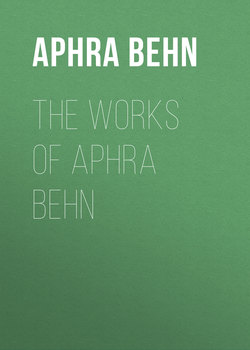Читать книгу The Works of Aphra Behn - Behn Aphra - Страница 4
THE FAIR JILT
INTRODUCTION
ОглавлениеAlthough The Fair Jilt was published in 1688, it is interesting to note that ten years earlier, Michaelmas Term, 1678, there is advertised for R. Tonson The Amorous Convert; being a true Relation of what happened in Holland, which may very well be the first sketch of Mrs. Behn’s maturer novel. The fact that she does not ‘pretend here to entertain you with a feign’d story,’ but on the contrary, ‘every circumstance to a tittle is truth’, and that she expressly asserts, ‘To a great part of the main I myself was an eye-witness’, aroused considerable suspicion in Bernbaum as to the veracity of her narration, a suspicion which, when he gravely discovers history to know no such person as her ‘Prince Tarpuin of the race of the last Kings of Rome’, is resolved into a certainty that she is romancing fully and freely throughout. It is surely obvious that such a point does not so much demonstrate Mrs. Behn’s untruthfulness as her consummate art. With all the nice skill of a born novelist she has so mingled fact and fancy, what did occur and what might have been, that any attempt to disentangle the twain would be idle indeed. The passages where she is most insistent upon the due sequence of events, most detailed in observation are not impossibly purely fictional, the incidents related without stress or emphatic assertions are probably enough the plain unvarnished happenings as she witnessed them. That the history is mainly true admits of little question; that Mrs. Behn has heightened and coloured the interest is equally certain.
The Fair Jilt must be allowed to stand in the very first rank amongst her novels. It has been aptly compared to a novella by Bandello, and is indeed more than worthy of the pen of the good Dominican Bishop of Agen. In all its incidents and motives the story is eternally true. The fateful beauty, playing now the part of Potiphar’s wife, and now the yet commoner rôle of an enchantress whose charms drive men to madness and crime, men who adore her even from their prison cell and are glad to go to a shameful death for her sake, appears in all history, in all literature, nay, in the very newspaper scandals and police courts of to-day. As a picture of untrammelled passion, culpable and corrupt, but yet terribly fascinating in her very recklessness and abandon, Miranda is indeed a powerful study. Always guilty, she is always excused, or if punished but sparingly and little, whilst the friar languishes in a foul dungeon, the page-boy is hanged, her husband stands upon the public scaffold. And then in the end, ‘very penitent for her life past’, she is received with open arms by Tarquin’s old father, who looks upon her as a very angel, and retiring to the tranquility of a country-house she passes her days in ‘as perfect a state of happiness as this troublesome world can afford’.
